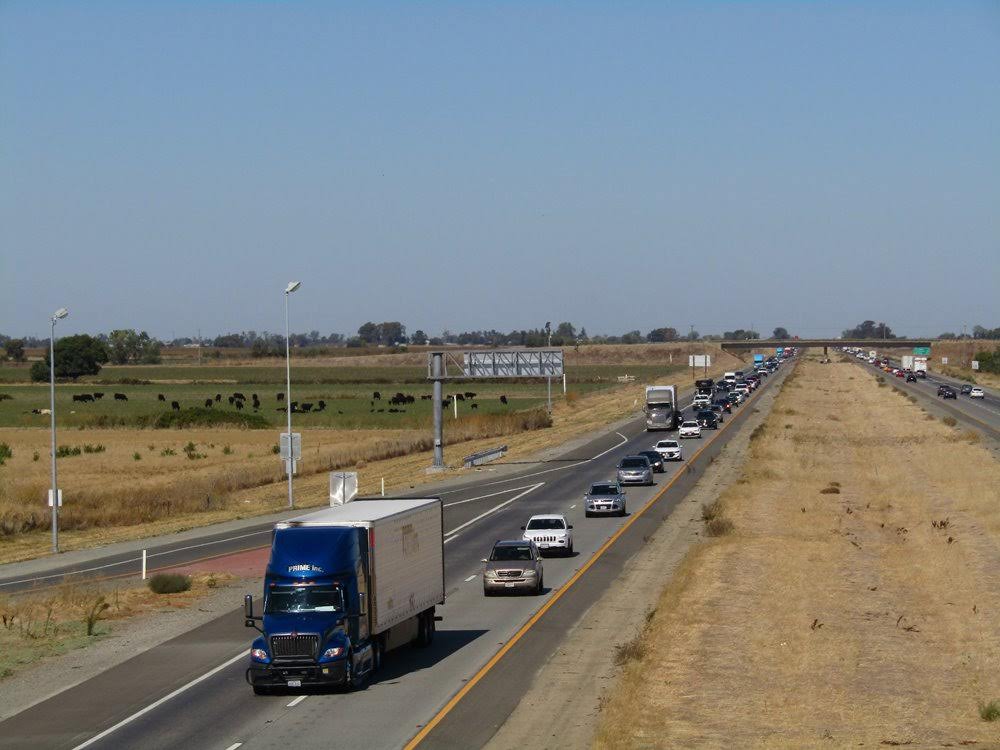Federal vs. State Trucking Laws: What Applies in Your Case

Written by Matthew Weidinger

When dealing with trucking laws, it’s crucial to understand whether federal or state regulations apply to your case. Generally, federal trucking laws set the baseline for safety and operational standards, but state laws often govern issues like accident claims, liability, and damages. Knowing which rules take precedence affects how you pursue a claim or handle compliance.
If you’re an accident victim or involved in a trucking dispute, your location and the specifics of the incident determine the applicable law. Federal laws cover interstate transportation, while state laws often apply to incidents occurring within the state and address local legal procedures and compensation rules.
Overview of Federal Trucking Laws
Key Federal Regulations
Federal trucking regulations primarily come from the Federal Motor Carrier Safety Regulations (FMCSRs). These rules apply to commercial motor vehicles involved in interstate commerce, affecting drivers, vehicles, and carriers.
Trucking companies must follow limits on hours of service (HOS), vehicle maintenance, driver qualifications, and cargo securement. HOS rules restrict driving time to reduce fatigue. Driver qualification standards ensure competency and health. Cargo rules prevent load shifting or falling, enhancing safety.
Violating these can result in fines, license suspensions, or operational restrictions. Federal rules override conflicting state laws when operating across state lines.
Role of the Federal Motor Carrier Safety Administration (FMCSA)
The FMCSA enforces federal trucking regulations to promote safety on highways. It monitors carriers and drivers through audits, inspections, and compliance reviews.
You benefit from FMCSA’s Safety Fitness Determination, which rates compliance based on safety records. This affects companies’ authority to operate commercially. FMCSA also manages the Drug and Alcohol Clearinghouse to track driver violations.
The agency issues guidance for hazard prevention and responds to emerging safety issues. Carriers must register and update information with FMCSA to maintain legal status.
Federal Compliance Standards
Federal compliance standards define minimum equipment requirements, recordkeeping, and operational protocols. Trucks must meet inspection criteria covering brakes, tires, lights, and emissions.
Trucking companies must maintain thorough records, including driver logs, vehicle inspections, and incident reports. Electronic logging devices (ELDs) are mandatory to document hours of service for most drivers.
Compliance reduces the risk of penalties and enhances safety. Federal standards aim to create a consistent baseline regardless of local variations. Meeting these standards is essential even if state laws differ.
Overview of State Trucking Laws
How State Laws Differ from Federal Regulations
Federal trucking regulations set baseline standards, but state laws can vary significantly. States may impose stricter weight limits, hours of service, or equipment requirements beyond federal rules. For example, California enforces tighter emission standards than the federal government.
You need to recognize that federal law generally preempts state rules, but states retain authority over intrastate commerce. This means if trucking activity occurs solely within one state, the company must follow that state’s specific regulations even if they conflict with federal standards.
State-Specific Trucking Requirements
Each state has unique requirements affecting permits, registration, and safety inspections. For instance, New York requires special oversized load permits distinct from federal regulations. Texas mandates annual state safety inspections, which may exceed federal inspection routines.
Some states also regulate driver qualifications and hazardous material transport differently. Trucking companies should consult their state’s DMV or transportation agency for exact rules to avoid fines or operational disruptions.
Local Legal Guidance for State Laws
Navigating state trucking laws is complex, and professional advice can be crucial. Smith & Weidinger PLLC specializes in interpreting state-specific trucking laws and can guide you through compliance issues and disputes.
Local legal experts have the knowledge to identify nuances in state regulations that could impact your operation. Retaining this guidance helps you address violations, negotiate with regulators, and understand evolving state laws that interact with federal requirements.
Determining Which Laws Apply in Your Case
Factors Affecting Applicable Laws
A truck’s weight, cargo, and use affect whether federal or state trucking laws apply. Federal regulations typically cover commercial vehicles over 10,001 pounds or those transporting hazardous materials. If a vehicle meets these criteria, federal rules from agencies like the FMCSA (Federal Motor Carrier Safety Administration) will likely apply.
If the truck is smaller, or only used within one state, state laws might govern instead. State laws can also fill gaps where federal laws do not reach. Knowing the exact nature of the trucking company’s operation and cargo helps determine if state or federal law controls your case.
Impact of Accident Location and Vehicle Type
The location of your accident plays a major role in deciding applicable laws. Crashes on interstate highways often bring federal law into effect, while city or rural road incidents are more likely governed by state statutes.
The vehicle type also matters. Long-haul trucks transporting goods across state lines are subject to federal interstate commerce laws. Local deliveries with smaller trucks fall under state regulations. This distinction affects your rights and responsibilities after an accident.
Consulting Legal Professionals
Because trucking laws can be complex, consulting an attorney experienced in transportation law is important. A qualified lawyer will evaluate your vehicle type, cargo, accident location, and other factors to identify the relevant legal framework.
Legal experts can help you navigate differences between federal and state regulations, ensuring your case is handled properly. They provide guidance on documentation, filings, and compliance specific to your circumstances. Getting professional advice early can prevent costly mistakes.

Why Choose Smith & Weidinger PLLC
Comprehensive Legal Support for Truck Accident Cases
Smith & Weidinger PLLC provides thorough legal support tailored specifically to truck accident cases. You will receive assistance from the initial investigation through settlement or trial, ensuring all evidence is properly gathered and evaluated.
We handle communication with insurance companies and opposing counsel to protect your rights. Our team prepares all necessary documentation and filings to meet strict deadlines. You can rely on our proactive approach to identify all possible sources of compensation.
Our firm understands the nuances of trucking incidents, including driver logs, vehicle maintenance, and employer liability. Our legal support extends to coordinating with experts who can strengthen your case.
Expertise in Federal and State Trucking Laws
Smith & Weidinger PLLC has a strong grasp of federal and state trucking laws that affect your case. We know how to determine which regulations apply based on factors like truck location, cargo type, and incident details.
We accurately interpret Federal Motor Carrier Safety Regulations (FMCSRs), while also accounting for varying state laws that impact liability and damages. This dual expertise helps you avoid pitfalls related to jurisdiction or regulatory conflicts.
You can expect clear explanations about how these laws interact and influence your claim. Our knowledge helps in crafting legal strategies that comply with complex regulatory frameworks and maximizes your chances of a favorable outcome.
Note: The information provided in this blog post has been compiled from publicly available and secondary sources. While we strive for accuracy, some details may become outdated or contain inadvertent errors. If you believe any information is incorrect or requires updating, please contact Smith & Weidinger so that we may review and make the appropriate corrections.
Disclaimer: This blog post is for informational purposes only and is not intended as a solicitation for business. The photo used is not from the scene of the incident described. Viewing this content does not create an attorney-client relationship with Smith & Weidinger. If you have been injured in an accident, please seek immediate medical attention and then consult with a qualified attorney to discuss your legal rights and options.










